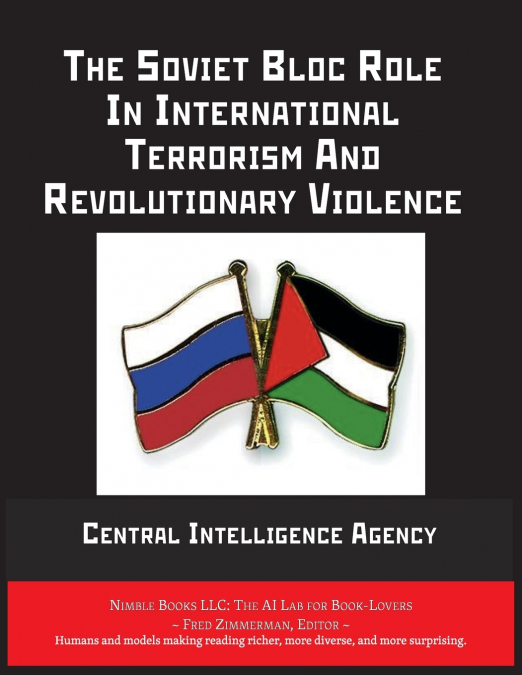
Central Intelligence Agency
Many observers born after 1970 are not aware of the Soviet Union’s integral role in spreading terrorism throughout the world and consequently do not appreciate the through line between Soviet aggression and the modern Palestinian reliance on political violence. This 1986 National Intelligence Estimate provides an essential primer.In a world on the brink, where shadows of terror dance across continents, this book is your weapon against the unknown. The Soviet Bloc’s calculated support of global terrorism is not a relic of the past--it is a playbook being actively refined by Moscow and its allies. Understand their motives, their strategies, and their web of proxies, for within these pages lies the knowledge to anticipate and counter those who seek to exploit chaos. This is not just history; it is a manual for safeguarding our future, a future you can help secure by understanding the enemy’s game plan. The document provides an in-depth analysis of Soviet attitudes and policies towards various forms of political violence, particularly those employed by groups they support. It sheds light on the factors influencing Soviet decisions regarding the backing of extremist groups, ranging from their potential effectiveness and alignment with Soviet interests to concerns about international reputation and potential backlash.The estimate highlights the sophisticated and adaptable nature of Soviet support for such groups, emphasizing the utilization of allies and radical states to camouflage their involvement and maintain plausible deniability. It examines specific regional contexts, including the Middle East, Latin America, and other parts of the Third World, providing insights into the nuances of Soviet and allied support for various actors, such as the PLO in the Middle East and insurgent movements in Latin America. The document also analyzes the role of surrogates like Cuba and East Germany in furthering Soviet aims, highlighting their contributions to training, arming, and providing logistical support to these groups.Furthermore, the estimate delves into the dynamics between the Soviet Union and radical states like Libya and Syria, exploring the limits of Soviet influence over their actions, particularly concerning terrorism. It also examines the complexities of the Soviet relationship with Cuba, acknowledging Cuba’s relative autonomy in supporting revolutionary groups, sometimes even those at odds with Soviet-backed factions. The document concludes by analyzing trends in political violence, noting a decline in leftwing revolutionary activities while recognizing the rise of state-sponsored and ethno-religious terrorism, and assesses future prospects, suggesting a continuation of existing patterns and the enduring nature of Soviet support for extremist groups, contingent on a calculated assessment of costs and benefits.This annotated edition illustrates the capabilities of the AI Lab for Book-Lovers to add context and ease-of-use to manuscripts. It includes several types of abstracts, building from simplest to more complex: TLDR (one word), ELI5, TLDR (vanilla), Scientific Style, and Action Items; essays to increase viewpoint diversity, such as Grounds for Dissent, Red Team Critique, and MAGA Perspective; and Notable Passages and Nutshell Summaries for each page.